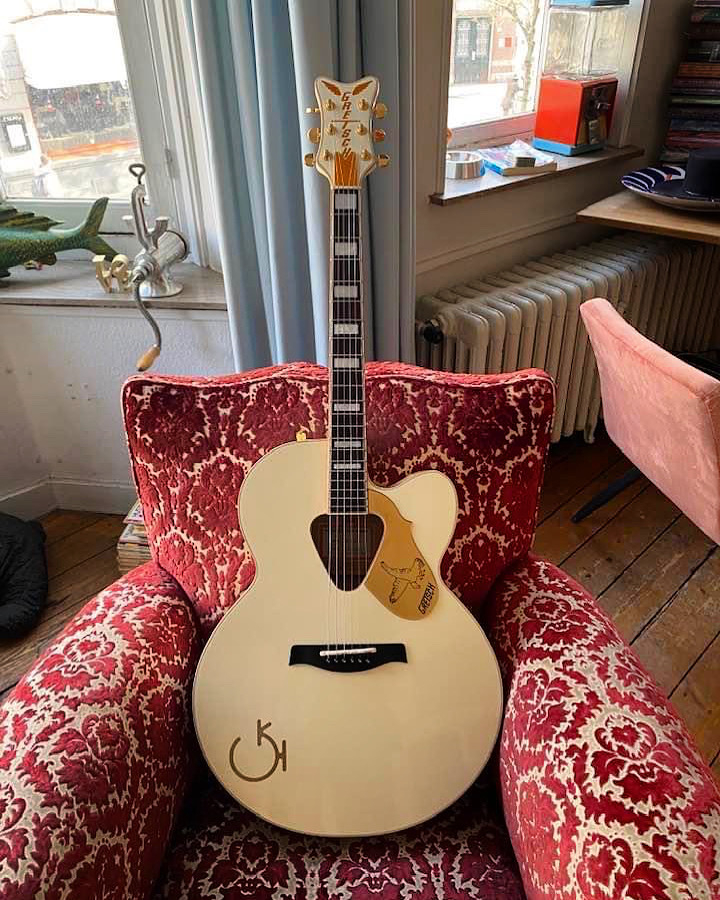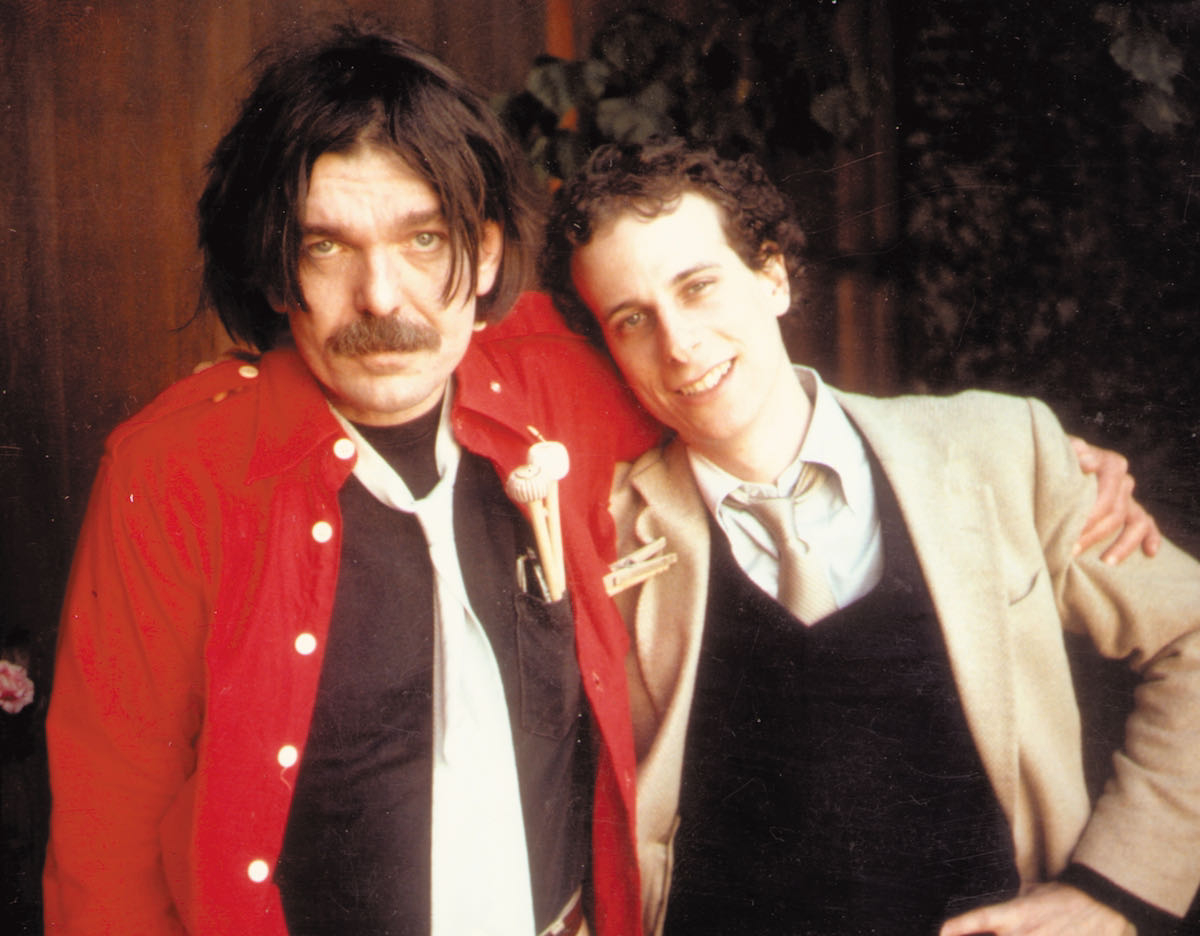
"If You Got Ears, You Gotta Listen!" -- Don Van Vliet (Captain Beefheart), "Dirty Blue Gene"
When I was in the 4th grade at George Washington Elementary School in Syracuse NY (a public school -- the opposite of what a public school connotes in the UK), the school's band leader / conductor Mr. Iannotta -- a nattily dressed, horn-rimmed, button-downed kind of guy who loved music and really instilled his love of music in his band members -- came into our class one day to conduct a Musical Aptitude Test -- measuring each student's sense of Pitch, Timbre, Rhythm and Melody by playing us a pre-recorded series of blips, bleeps and thumps -- and then asking us to detect and identify the difference between one section and another in terms of the aforementioned -- the veritable spicy ingredients of Life!
This was in the service of determining who amongst us possessed the finest and most sensitive Ears in what he called "the sea of students" -- the most precocious musical flowers a'blooming there. Having achieved a perfect score on this little exercise in Ear Sensitivity, lo and behold I was assigned -- nay, coerced -- into studying the French horn -- which was well known to be the single most difficult instrument to play in the entire concert band arsenal.
My tackling the French horn (Francophile that I am) was a farcical notion at best.
Given that, besides the unerring sense of Intonation required to play this particular instrument well, to actually soar and not splutter through it, one also needed (in spades) a Mick Jagger-like pucker and pout o' the lips to produce something approaching yr classic burnished, dulcet French horn-tone. And if you clock any photo of me, you will notice that I barely have an upper lip. Yea, barely, yea…
So my playing the French horn was a Faustian bargain at best. More like a match made in Hell!
"The I", as we affectionately referred to Mr. Iannotta, started me out first on the French horn's little brother the Mellophone (good moniker)…then graduated me to Baritone horn (a fun ride frankly, there was some ballsy heft in the tone production of this thing) -- and once he thought I was a' groomed and ready, he finally brow-beat me into taking on the full monty of the French horn. That rather thin mouthpiece hurt like hell...well I was wearing orthodontic braces in my mouth during some of this ordeal, and had to wear a wax impression over them to protect my tender Inner lips (jeez this is painful to recall).
Simultaneously, I started playing the guitar -- which once I got a nylon string version was so much more fun to play than the fucking French horn. But I manfully stuck with the French horn for 8 long years, playing in the George Washington concert band (“Big Yellow Bus”), the Hurlbut W. Smith concert band ("On Wisconsin"), the Nottingham concert band ("Trittico") and the Syracuse All-City Band and All-City Orchestras (once coming down from my first acid trip) -- until Mr. I kicked me out of the high school band senior year for a) wearing sandals to a rehearsal (he was kind of a neo-con authoritarian, and was often seen carrying a copy of a book titled "How to Be a Conservative in Onondaga County") and also b) he caught me improvising on a March during a concert. I thought I was "Hey Jude"-like making it better...jazzing it up, as it were!
In any case my inner Ear got me into all sorts of fun musical situations back in the day -- playing with The Combo in elementary school (Walter Horn on trumpet, Scott Soffen on trombone, yrs truly on electric guitar played through a jack in an old FM radio, Wayne Grody on clarinet, and Robert Schlamowitz on drums, our repertoire consisting of Steve Allen's "Gravy Waltz," Henry Mancini's Theme from "Peter Gunn," Al Hirt's "Java," Bert Kaempfert's "A Swingin' Safari," and Acker Bilk's "Midnight in Moscow"), also a coupla rock bands also, and so forth.

But where my Ear really came into full effect was when I joined up with Captain Beefheart (Don Van Vliet) in 1980 as a guitarist in the final edition of his Magic Band. I can be heard on his last two Virgin albums Doc at the Radar Station and Ice Cream for Crow.
A musical primitive and a stone artistic genius (I never met anyone remotely like him -- and I've worked with many of the best), Don would assign you the most impossible tasks : "Play like you dyed, man!" -- and your mission was to fulfill his imperious mandates as best as humanly possible.
Now Van Vliet could neither read nor write music. He could however physically get on various instruments (piano, drums, guitar, saxophone, and harmonica) -- and play them, sort of…(he actually could play blues harp really well) -- and he could also scat-sing and whistle like a demon, basically, and produce all sorts of titanic musical moments in real time that he either taped and or had you tape (sometimes at 3am on a long distance phone call).
Your mandate was to take this musical artifact-of-the-Moment, played by the Master once and once only (and as a primitive and a naif, unrepeatable by his good self), and then you were expected to codify it and realize it on the guitar as closely as possible to Don's original version -- hiccups, pauses, mistakes and all (although he would tell you, "There are no mistakes, man!").
"Don," I once pointed out to him, "you're using all 10 fingers playing piano" -- basically playing what are known as through-composed improvisations -- "but there are only 6 strings on the guitar!"
"You better find another 4, man!" he shot back.
So beginning around 6am every morning I would get with one of Don's piano tapes before going into work at CBS Records, where I held down a day-job as a copywriter for 13 long years (that's another story), and by listening exceedingly closely and carefully, I would pick out and voice on guitar the various parts and lines Don had generated -- about 5 seconds of music maximum each day, and memorize the piece as I went along, day after day after day.
It was a heck of alot of work, but in truth: I LOVED IT. It was like my early morning meditation exercise.
I noticed on one of the pieces he titled "Evening Bell" that he kept hitting a low D on the piano, which was more or less the tonal center of the piece -- so voila! I dropped the low E string on my '64 Strat down to a low D to be able to voice this composition correctly, and there you have it.
CLOSE LISTENING!
Here's a good example of my work transcribing by ear another of the thornier pieces in the Van Vliet oeuvre -- a piano composition entitled "Oat Hate":
Later on I was to apply the same principles to my transcriptions of select classical music compositions, such as the well-known "Largo" from Dvorak's Ninth Symphony "From the New World," a/k/a "Going Home":
Recently I connected with a young dancer based in NYC named Alison Clancy -- a total star of the Metropolitan Opera Ballet Corps. Alison came to my 40th anniversary show at Le Poisson Rouge last Sept. 11th with her uncle Tom Brigham, who is a long time fan of my music.
I noticed this very cool woman shooting clips of me and my Gods and Monsters guys (Ernie Brooks, Jerry Harrison, Jason Candler, and Richard Dworkin) on her cell phone in the middle of my 40 year retrospective.
The next day she had posted a bunch of them on Facebook, so I reached out to thank her, and we became friends right away.
I had brunch with her soon after and after introducing herself, she told me about a great gig she'd recently created at the Met.
She holds the distinction of dancing the longest solo dance in Met history to Richard Wagner's "Overture to Der Fliegende Holländer (The Flying Dutchman)" for the 2020 production of that opera, with choreography by Carolyn Choa.
I told her that I loved Wagner's music (shame about his politics and hateful anti-semitic remarks in his screed "On Judaism in Music"), and in fact had arranged several of his pieces for solo guitar, like this one:
Alison was intrigued -- and there on the spot urged me to arrange the "Overture to Der Fliegende Holländer (The Flying Dutchman)" for solo electric guitar, in order to accompany a performance she had scheduled of her famous dance up at MIT (Massachusetts Institute of Technology) in Cambridge, Mass on May 6th. I like a good challenge and readily agreed!
To date I've worked at least 100 hour man-hours on arranging this piece, many of them spent doing so in the fair and pleasant city of Maastricht in Southern Holland, on a refurbished Gretsch Falcon acoustic.
So again, how do I do it??
Well, I never once have referred to an actual score of this Wagner operatic war-horse. That would be too easy! Nope, I’m doing it (to death) by way of CLOSE LISTENING to many different symphonic versions of the piece via YouTube. I say many, as through the miracle of different microphone placements, various recordings reveal many hitherto unnoticed facets to the Overture which you might not pick up on utilizing one version only.
I also once again used an open tuning in arranging this piece (my secret sauce) -- as all sorts of unexpected harmonic resonances can occur across the 6 strings in an open tuning -- which often takes the arrangement out of the realm of a formal "classical guitar transcription” in standard tuning, which I find normally stultifyingly boring. It's an additive process over time, working out the various motifs, melody lines, voicings and fingerings, and memorizing the piece as you go along. As always, I keep all of my arrangements of non-Lucas music -- classical music, Chinese pop from the '30s, Bernard Herrmann's Hitchcock scores, what have you-- in their original key. Which forever creates a resonance for a listener who knows the original work well.
When I finally do perform my arrangement accompanying Alison's dance performance at MIT, I will have played through my guitar version at least a hundred times to get the right flow going.
And that's the way, uh huh uh huh, I like it!
